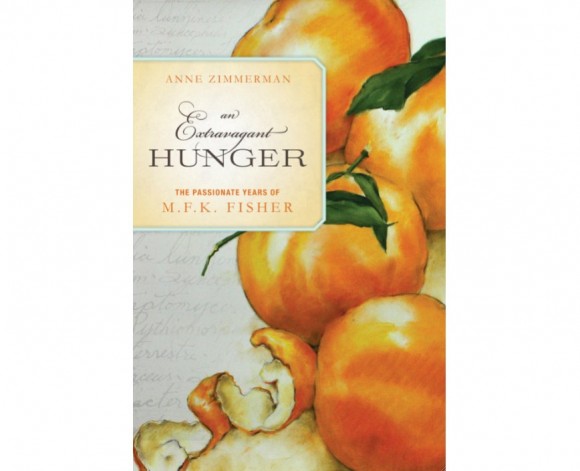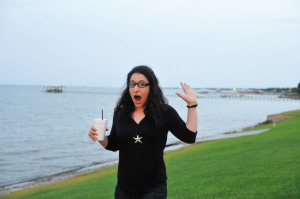by Sam Tackeff | Oct 13, 2012 | Seafood, Writing
For years I’ve wanted to make, and share, a daily practice of writing, but I was too anxious to start. The act of writing really wasn’t the problem; I was afraid of not being good enough, profound enough, or not being the best. So I just didn’t write. While I’m certainly not shy or quiet, there have been many occasions in life where I’ve missed out because of this fear.
A funny thing happens when you commit to something and stick with it. Your life starts changing, fast. Seemingly impossible things completely unrelated to your original goal start becoming possible. When I started writing here regularly again, I had to consciously put aside my anxiety about being the best, and remind myself why I was here: to cultivate a daily practice of writing and photography, to support myself during the challenge, and to be part of a community who shares my values and inspires me daily. I still have to remind myself, I think we all do sometimes – you are worth it, don’t let fear hold you back.
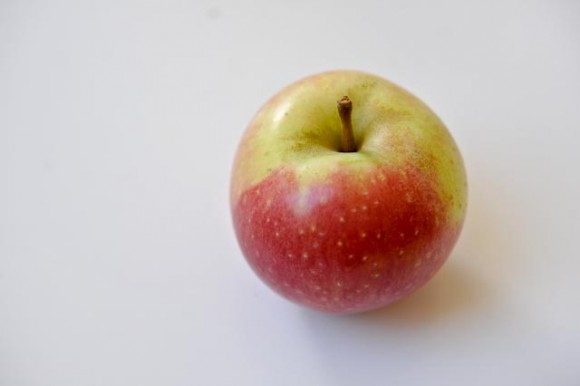
My day started out uncharacteristically. I was supposed to have a meeting mid-morning over coffee, but it was re-scheduled, so I worked most of the morning before I realized that I had neither eaten anything nor had my caffeine. Around noon, I grabbed this Spencer apple and headed out the door to pick up some George Howell coffee at Formaggio.
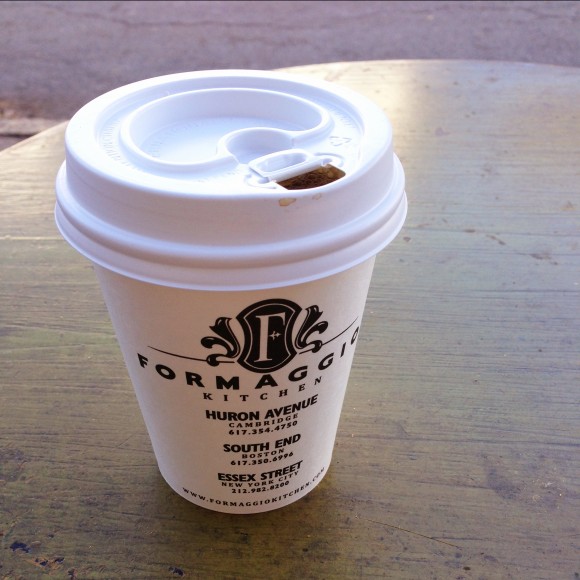
It was brisk, but sunny, so I took the opportunity to take a half hour walk around Cambridge before heading back home. I had planned on running in the evening, but was feeling a little bit under the weather, so the walk seemed like a good compromise.
In the late afternoon, I put together a salmon dish that I was working on for a secret project. Not being able to keep a secret, I went ahead and shared a photo of it on Instagram, so there’s no hiding it here. (I’ll post the recipe next week.)
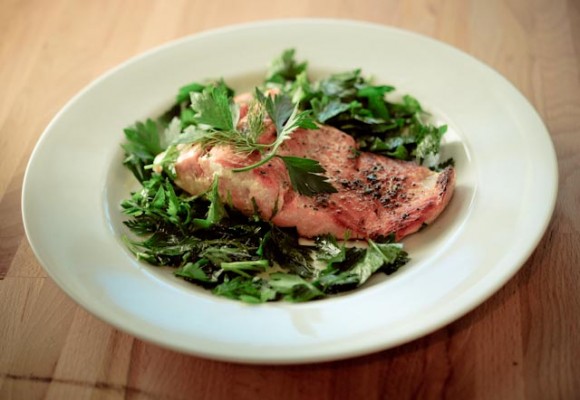
Lately, I’ve been working on practicing better self-care. As a coach, I was trained on the value of self-care for optimal health and wellness, but practicing what I preach in this area has always been difficult. When I was living in San Francisco, practicing mindfulness/meditation based stress reduction, getting regular massages and chiropractic adjustments, acupuncture, and practicing regular yoga were all part of my routine and provided tangible benefits, but in the past year I’ve regressed.
So I took my own advice, and went for a manicure and shoulder/neck massage at MiniLuxe. The color is OPI, I think either Sweet Heart or Hopelessly in Love, but honestly I didn’t check. For hands that have suffered mercilessly in the kitchen and the gym, I thought they turned out remarkably nice.
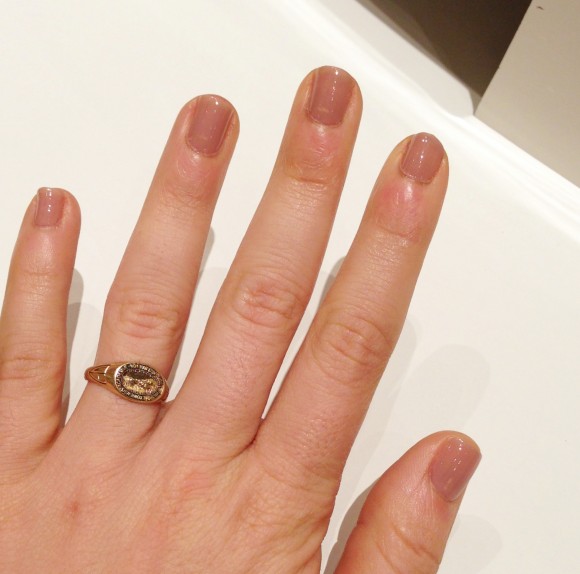
For dinner, I cooked flounder filets in olive oil, seasoned with Turkish fish seasoning. For light flaky fish like flounder, I usually cook them on one side for a few minutes, and baste the top with hot olive oil, which cooks it through without needing to flip it.
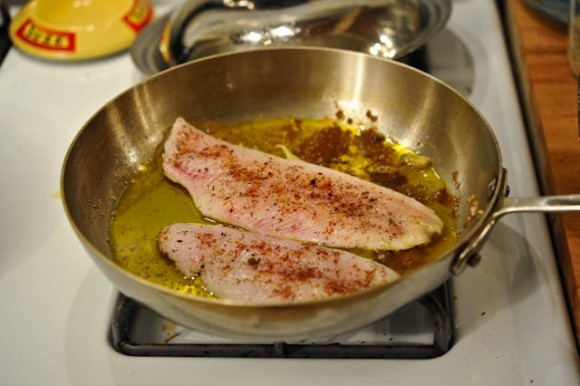
I baked a sheet tray of parnsip fries with rosemary, and served myself up this not quite as indulgent version of fish and chips.
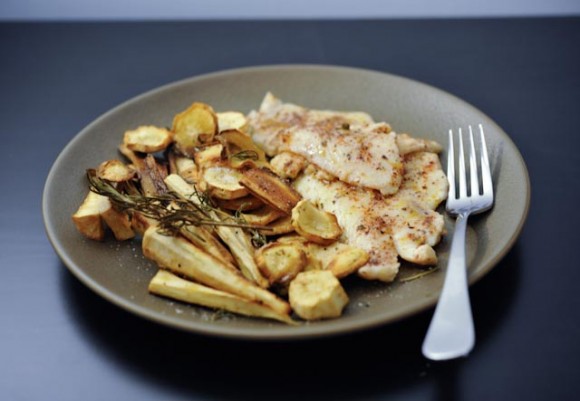
For dessert, I baked a few pumpkin walnut cakes from this recipe. They didn’t quite turn out as successfully as I’d like, but when I tweak the recipe to perfection, I’ll post it.
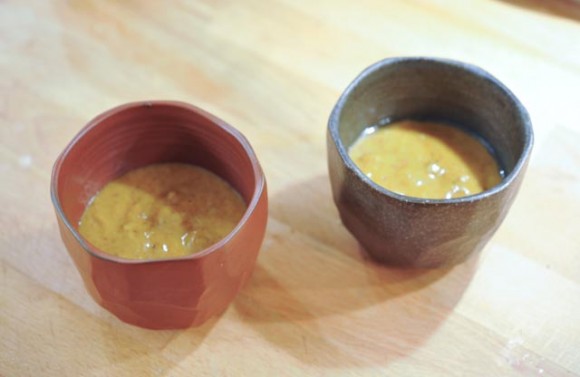
by Sam Tackeff | May 3, 2012 | Random, Writing
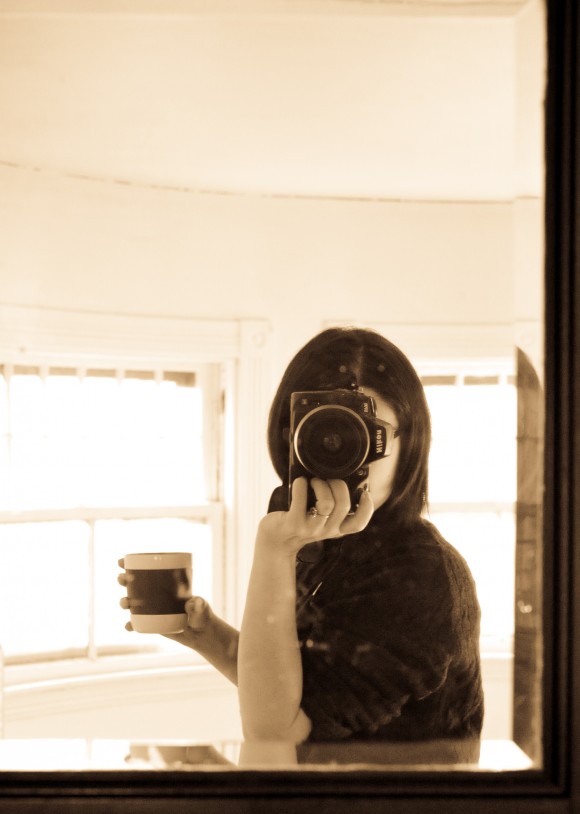
I think my words are coming back.
They’ve been gone for a while, but I feel them trickling in.
I’ve been stuck, tired, overwhelmed – we all feel this way, at some point. Moving last summer was hard. I miss San Francisco and the wonderful people I got the chance to engage with, eat with, and play with. I didn’t feel quite ready to move on. I became stagnant. I didn’t spend nearly enough time reading or cooking. But it’s spring time, and I feel something stirring.
I’m ready to start creating again.
Here are some of the things that have helped me:
{The Well-Fed Woman Mini-Retreatshop Tour} With the beautiful, insightful, shimmery Rachel Cole: Last month I spent three powerful hours with a group of women in Providence, Rhode Island. It re-affirmed what Wellesley taught me best: Sisterhood is such an important thing. I was expecting it to be a positive, light-hearted experience. I had no idea that I would cry, feel deeply moved, and leave feeling super-charged.
{SoulPancake: Chew on Life’s Big Questions} It’s a book about life by Rainn Wilson, yes, that Rainn Wilson (of The Office fame). I picked up a copy at SXSW when I had no business buying a book given I had only taken a very small carry on to Texas. Some books demand to be taken home – books that scream at me and make me slightly nervous that I’m losing it. This was one of those. There is abundant wisdom in this book – sometimes you need to start by asking the right questions, and these are them.
{My Foodzie Tasting Box Subscription} Once a month, I get to be a little kid and open the best present to myself ever. I love trying new treats, and Foodzie picks the best of the best. Some of my recent favorites have been Droga’s Put Your Money on Honey Caramels, Zingerman’s Zzang Bars, and p.o.p Buttercrunch.
{Formaggio Kitchen} Trips for perfectly brewed George Howell coffee, small sandwiches, honey, tea. This place is the larder of happiness. On Saturdays mornings, they have barbecue outside. We’ve been twice this month. Also, they have Rancho Gordo Beans, Anson Mills Grits, and Jeni’s Ice Cream in the freezer.
{Psych} We’ve been re-watching the Psych from the beginning. It’s just such good writing. On that note, because of my time-consuming start up job, I’ve stopped watching the majority of the crap I was watching on television. My next step will to be delete shows from the DVR. It’ll take some more courage to sever the cord completely.
{Spring Manifestos} Over at The Art of Seeing Things.
{An Everlasting Meal} by Tamar Adler. It’s been quite some time since I could curl up with a book and enjoy it as much as I’ve enjoyed this one. I picked it up at Brookline Booksmith, along with Tina Fey’s Bossypants, and (finally!) my own copy of Brillat-Savarin’s The Physiology of Taste (M.F.K. Fisher translation). I forgot how nice it was to spend lots and lots of money at an independent bookstore.
{Instagram for Android} It’s here! You can find me @alphaprep. I’m also re-purposing my tumblr into a space for my Instagram photos.
by Sam Tackeff | Jan 8, 2012 | Blogging, Books, Writing
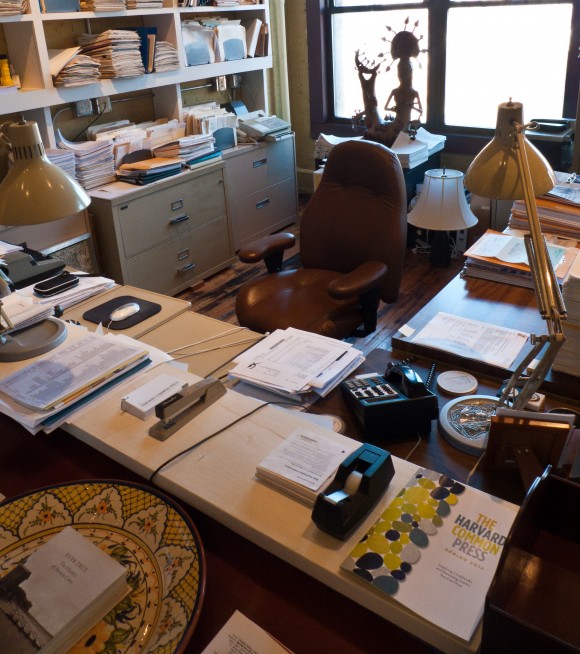
Last month I got to visit the gorgeous offices of Harvard Common Press not once, but twice, and let me tell you – I’m about ready to move in there.
The second trip was with Boston Brunchers, founded by the multi-talented Renee Hirschberg. Renee works full time, is getting her masters, blogs several times a week, and runs a real life community whisking lucky bloggers to brunch several times a month in the Boston area.
This time she managed to swing a doozy – brunch for 40 at Harvard Common Press, complete with a question and answer session about publishing a cookbook with HCP’s associate publisher and digital media director Adam Salomone, owner Bruce Shaw, and marketing director Nancy Grant Mahoney (who’s name was too long for her Twitter handle, and got cut off – perhaps fortuitously? – to “Mahon”, a delightful cheese).
Writing a cookbook can be a two year process (or more). Here were some of the details in a snapshot:
Finding your Publisher:
- Use Social Media to make friends with publishers: HCP has published authors they have gotten to know through Twitter!
- In thinking about your blog and brand, remember what you are passionate about.
- Engagement level: HCP will address many different aspects when evaluating a potential author. For bloggers, this includes writing, photography, voice, knowledge and interest, compete.com traffic, blog comments, twitter and facebook usage.
Process: so you’ve made it! You’ve waded through and have a publisher. What can you expect next?
- Material Sources: It used to be that you could use 25% of previous blog recipes, now most publishers expect your cookbook to be 100% new material. (More work for you!)
- Editorial Process: At HCP, editorial director Dan Rosenberg helps authors come up with a work plan, the developmental stage that helps you assess what needs to be in your cookbook.
- Writing the manuscript: This can take 9-12 months, and realistically if you are a blogger, this means a lot less time eating out, cooking for the blog, and blogging in general.
- Editors: You’ll likely have a robust back and forth with your editors. You’ll bang your head, panic, go a little crazy. This is good.
Ultimately, you, the editor and the publishers have the same goal in mind – to make your cookbook the best book it can be.
Once published (or almost published): Publishing houses used to have in-house marketing and do everything to pub and market a book. Now, authors can work closely with the publisher to promote the book. Bloggers have a built in market, and HCP works with the author with a wide variety of social media tools including tweet tours, blog tours (where the author may guest post on 10 or more different blogs), and in person tours.
(If you write a book, you can give a talk at Omnivore! Just make sure you ask Celia to provide some wine!)
* * *
One more note, from me. If you want to write a cookbook, but aren’t ready to take the plunge, consider working for a published cookbook author on their next book. You will wash a lot of dishes, learn an enormous amount about the process, and be well–prepared when you eventually decide to write your own.
* * *
Bruce Shaw, owner of Harvard Common Press, on Bloggers: “You are technically our competitors, but you are also our life blood here!”
* * *
And some photos of the office:
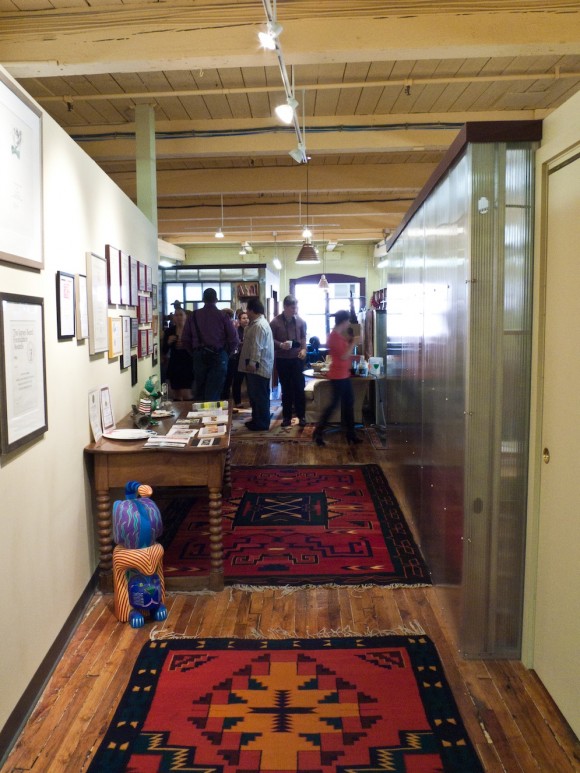



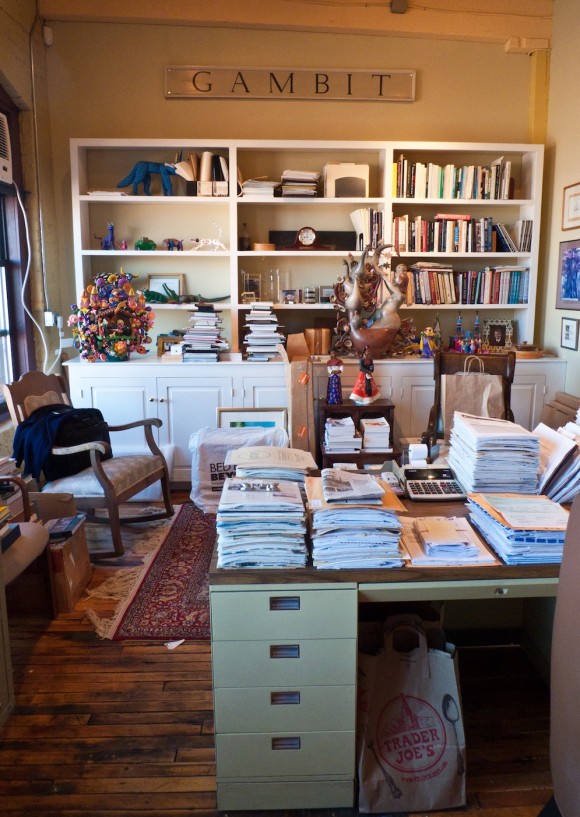

A big thank you to the kind folks at Harvard Common Press for letting me snoop around!
Harvard Common Press
HCP Dishes Blog:
HCP Blog Eats (new in the blog world): http://www.blogeats.com/
by Sam Tackeff | Aug 22, 2011 | Books, Writing
“It seems to me that our three basic needs, for food and security and love, are so mixed and mingled and entwined that we cannot straightly think of one without the others. So it happens that when I write of hunger, I am really writing about love and the hunger for it, and warmth and the love of it and the hunger for it… and then the warmth and richness and fine reality of hunger satisfied… and it is all one.”
— M.F.K. Fisher (The Art of Eating)
I have a few rituals for when I get into a rut with food. When I can’t think of what to cook any more, I sit down surrounded by my favorite cookbooks, and make lists. When I can’t think of what to write anymore, I read M.F.K. Fisher. For me, her writing is comforting. Like a stand-by recipe you know will turn out perfectly every time, but each time you cook it, it surprises you with new complexity. A new taste or thought. A new memory. Or a new connection.
Mary Frances Kennedy (M.F.K) Fisher, is generally considered one of the founders of modern food writing. For me, she is the ultimate authority.
Now, lest we ignore our predecessors, there has been food writing for millenia. The Greeks, the Romans, the Egyptians, they certainly knew how to throw a party, and enjoy their food and drink. But somehow, in the past several hundred years, there has been a drought of evocative food writing. The genre suffered a long spell of being largely prescriptive and dry. Either you were writing about how to give dubious elixirs to invalids, or you were giving technical details about mother sauces. Stray from these directions and you would be swiftly smote by the culinary deities. There wasn’t much more than that.
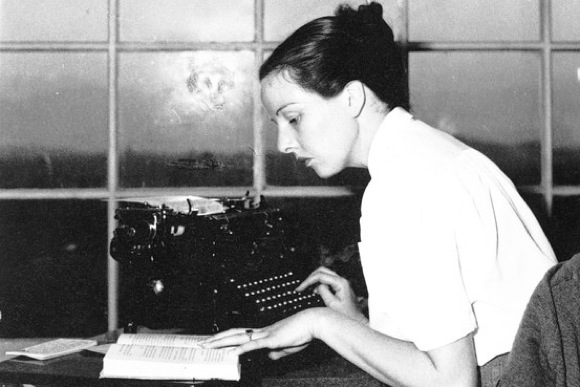
M.F.K Fisher was radically different. She wrote about food from the perspective of someone who passionately loved eating food. She wrote about indulging, traveling for food, taste, dreaming about food. She was blunt, exceedingly witty, and intelligent. How many food writers are expansive enough that their quotes fit seamlessly into Roger Ebert’s film reviews? Reading her writing, I’m always reminded of F.Scott Fitzgerald in tone and style – except instead of writing about disaffected wealthy people, she writes about quelling her own hunger, which is a much more interesting topic. She wasn’t a professional chef (and some of the recipes in her early books were slightly off), but boy could she conjure up a taste memory.
And that’s what modern food writing is about. Good food writing, that is. Fisher’s writing is about thinking about food, not from a technical standpoint, but a heartfelt one. If you are interested in improving your writing, M.F.K. Fisher is a good place to start.
Almost all the food writing I love and devour – the books, blogs, gushing articles in Saveur, even Ruth Reichl’s dream-like food tweets “Silver sky. Breezy. Cooler. Tiny red new potatoes gently roasted. Shower of salt, sweet green garlic. Soft, savory. Irresistible.” which spawned ½ of @RuthBourdain’s satirical tweets: “El Bulli just served its last dinner. Sources tell me Ferran shut off the lights in the middle of dessert and played “Don’t Stop Believin’.” – is indebted to M.F.K. Fisher.
I could spend my time writing about M.F.K. Fisher ad nauseum, but this post is actually about Anne Zimmerman, whose biography of Fisher’s early life came out this year.
I met Anne a few years ago soon after I moved to San Francisco. She was finishing a book about the aforementioned food writer, Fisher, and I was managing a bookstore that specialized in books on food. I’m truly in awe of anyone writing a book, but Anne seemed particularly sweet and humble about it. I knew within about five minutes of meeting her that I would enjoy her writing.
Anne Zimmerman’s “An Extravagant Hunger” relates the story of M.F.K. Fisher’s fascinating rise to fame and prominence. Beyond her writing, Fisher was a riveting persona. By gathering details from her personal correspondence and papers, Anne brings to us the woman behind the writing, and it is easy to see Anne’s admiration of her subject in the text. A dramatic life, rife with tumultuous romance, passion and creativity, the food writing iconoclast is truly a phenomenal character.
There is no doubt that Fisher was a brilliant and talented young woman, however she didn’t hit her stride until her early thirties when her first book was published. From then on, she was incredibly prolific. She penned more than 30 books about food, and countless articles, as well as the best translation of Brillat Savarin’s ‘The Physiology of Taste’.
For all of us writers who have yet to publish our first book, it is encouraging to read about the meandering path it takes to be a true renaissance woman.
An Extravagant Hunger: The Passionate Years of M.F.K. Fisher by Anne Zimmerman
Published by Counterpoint, 2011
352 Pages
And if you need to get started on Fisher – I’d go ahead and recommend ‘The Art of Eating‘ which is a compilation of some of her best work.
















